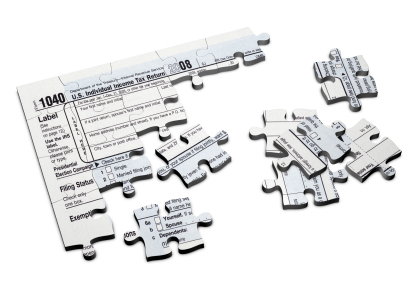College Admissions
College Admissions
Preparing for College
The Best College for You
What to Study
Applications
Education Options
Education Options
Private Universities
Public & State Universities
Community Colleges
Scholarships
Scholarships
African American Scholarships
Latino Scholarships
Native American Scholarships
Women Scholarships
College Grants
College Grants
Federal Grants
Merit Based Grants
Need Based Grants
Student Loans
Student Loans
Federal Student Loans
State Student Loans
No Co-signer Student Loans
Bad Credit Loans
Student Loan Consolidation
College Survival
College Survival
Financial Aid Tips
The Digital Student Blog

Don’t read this unless:
You are a busy college student with no time to dig through the IRS voodoo in vain attempts to determine your tax situation;
You still are unsure whether you’re required to file a federal tax return;
You want to know how to get your taxes done ASAP and on the cheap, PLUS learn a few tricks for discounting the bottom line.
Here’s the busy student’s blueprint for getting taxes done, or not done, before April 15.
Step 1: Determine your need to file a federal income tax return.
Step 2: Learn about the various tax benefits available to college students and/or parents.
Step 3: Find low- or no-cost tax preparation assistance.
Taxes are typically the last thing a college student wants to worry about. However, the better strategy is to find out ASAP how you are affected in the tax ecosystem, if you have any conditions under which you must file, and what counts as taxable compensation.
The answers to common questions like these help determine if you must file federal and state taxes.
File your federal taxes for any of the following cases:
 Wages, salary, tips and other income, formal or “under-the-table,” you should know about. Whether you have a detailed accounting of these wages is another topic, but you know when someone’s paid you for work or service.
Wages, salary, tips and other income, formal or “under-the-table,” you should know about. Whether you have a detailed accounting of these wages is another topic, but you know when someone’s paid you for work or service.
If you have stocks, bonds or other investments that earn dividends you will automatically receive a tax form in the mail from the company that manages those funds. The same holds true for a checking or savings account that earns interest—your bank will send you a tax form to include with your federal taxes. Envelopes from these entities marked “Tax Documents” will show up in your U.S. mail sometime during the end of January or the first part of February. File them with any other tax information you’ve saved.
Confusion enters the picture when your “income” is complicated by scholarship, fellowship or federal grant money, such as the Pell Grant. Do you pay income taxes on any of these? The general rule of thumb is this: if you are a degree-seeking student and your scholarship, fellowship, or federal grant dough was used to pay for tuition, to buy required books and purchase other required materials, you do not pay taxes on those funds—they are non-taxable items. Read closely: keywords are “degree-seeking” and “required” books and materials. Tuition does not mean cost of attendance, either. If you paid for a dorm room and a meal plan and/or transportation and used scholarship or fellowship or grant money then that portion of your gift aid is taxable. You should report any taxable portion of these funds on a federal tax form.
If, after considering all of the above, you are still befuddled as to whether you are required to file a federal tax return, seek further tax preparation assistance.
Step 1, completed—you should have already figured out if you are required to file a federal income tax form. In Step 2 you’ll learn about the various income tax benefits available to you or to your parents, in the case that you are a dependent on their tax return. Here are federal tax programs—money-- you or your parents may be permitted to slash from your total earned income and taxable bottom line.
Step 1 – you’ve determined your eligibility for filing a federal tax return; Step 2 you learned about the various education credits that allow you or your parents to save thousands on taxes for the year; in Step 3 you have a list of useful sources for affordable or free tax preparation assistance.
Possible Resources for Tax Assistance and Preparation

Here is a short list of the most common IRS income tax and wage forms you’ll encounter as a student:
References
* IRS Volunteer Income Tax Assistance organization
IRS Education Guidelines